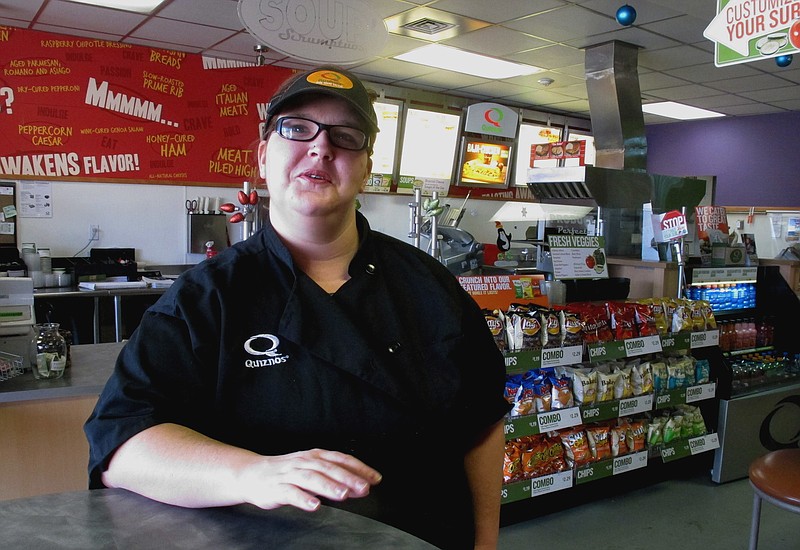With a bump in the Washington state minimum wage to $9.19 an hour, high school student Miranda Olson will edge closer to her goal of buying the black Volkswagen Beetle she's been researching online.
Olson is only able to pick up part-time hours working at a cafe after classes and on weekends. But the extra pennies she'll earn in 2013 will add up over the coming weeks and months.
"It's not much, but it's something," said Olson, 16, who works at Wagner's European Bakery and Cafe in Olympia. "Every bit helps."
Many workers around the country won't be as lucky as residents of Washington state, which is raising its minimum wage Tuesday by 15 cents an hour even though it already has the highest state baseline in the country.
Minimum-wage workers in Idaho will make nearly $2 an hour less in 2013 than their counterparts living just one state to the west.
Automatic increases designed to compensate for inflation have steadily pushed up wages in some states, even through the recession, expanding the pay gap between areas that make annual adjustments and those that don't. Of the 10 states that will increase the minimum wage Tuesday, nine did so automatically to adjust for inflation.
Rhode Island lawmakers approved that state's wage increase in the past year.
Paul Sonn, legal co-director at the National Employment Law Project, said he hopes more states will start looking at automatic adjustments as the economy recovers. He said the model - which Washington state adopted in 1998 - helps avoid sudden jolts as states try to catch up with each other.
"We think there's a case that it's better for everyone, including the business community, to have predictable, regular, small increases every year," Sonn said.
The automatic adjustments aren't much. Washington's bump will mean those who work 40-hour weeks will earn an extra $6 a week - enough for a couple lattes - or about $300 a year.
Hundreds of thousands of workers are expected to get a pay increase with the wage adjustments that begin New Year's Day. Along with Washington and Rhode Island, the changes will occur in Arizona, Colorado, Florida, Missouri, Montana, Ohio, Oregon and Vermont.
Among the nine states with automatic adjustments, the average minimum wage is $8.12 an hour, up from a little under $8. States that do not have automatic changes operate with an average minimum wage of about $7.40 - a difference of about $1,500 a year for a full-time worker.
Many states, including Idaho, follow the federal minimum wage of $7.25 an hour, either because they've tied their minimum wage to that threshold or because the state-enacted minimum is lower than that.
San Francisco has set the highest local minimum wage and will have workers paid at least $10.55 an hour in 2013.
Groups such as the National Restaurant Association oppose further increases in federal or state minimum wages, arguing that it's an ineffective way to reduce poverty and forces business owners to cut hours, raise prices or lay off workers.
At Tom's 1st Avenue Bento, a downtown Portland lunch spot, owner Tom Hume said he boosted pay for minimum-wage workers before the end of the year in order to get ahead of the game. He also raised prices on one-third of his menu items by 25 cents.
Natasha Baker, 22, who works at Hume's restaurant in Portland, recently moved back in with her mother but hopes to move to another apartment in January. She said the extra $5 or $6 she's earning every week with the salary boost is OK but won't make a huge difference.
"I don't usually look at what I get paid," she said. "I'm more directed on what's being taken out, which is more discouraging than anything."
In Montpelier, Vt., restaurant owner Irene Facciolo said she supported the 14-cents-an-hour increase in the minimum wage for her employees. She said the move from $8.46 to $8.60 an hour wasn't much.
"We don't have a problem with it at all," Facciolo said.
AP Writers Steven Dubois in Portland, Ore., and Dave Gram in Montpelier, Vt., contributed to this report.
See also:

